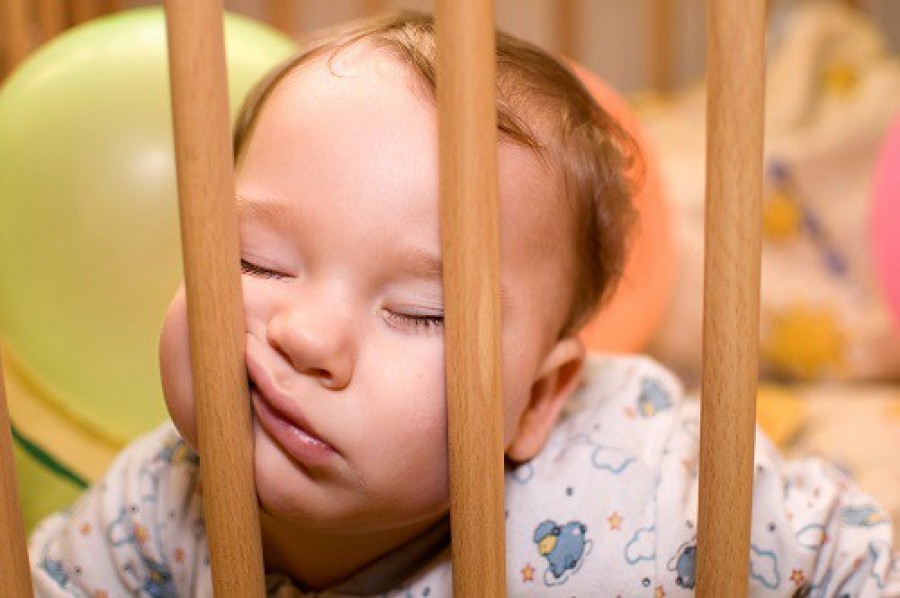Home Remedies to Treat Infant Insomnia

We all know that putting a baby to sleep can be a tricky task, especially when they’re teething, unwell or don’t want to be separated from their mummies. But, for some toddlers it can be a sign of infant insomnia, which may sound a little scary, but with patience, can be corrected.
Just like adults, children can suffer from insomnia, which may come as a shock to parents who assume that it can’t occur in children. Infants, babies and toddlers are prone to this disorder because they generally have different sleeping patterns than adults, with the average length of an infants’ sleep per day totalling around 16 hours.
Why do babies suffer from insomnia?
Like mentioned above, infants can have trouble sleeping for a number of reasons including:
- Digestive ailments that keep them awake
- Teeth are beginning to grow
- Trying to get their parents’ attention
- Hunger
- Outside noise and distractions
- Too much light
- Complicated circadian rhythm
- Nightmares
- Difficulty breathing
- Stress, abuse
- Psychological or neurological disorders (autism/epilepsy)
- Reflux

1. Newborns and Infants
Likewise, infant, toddler and baby sleep cycles are different to our own, as infants experience short sleep cycles that are approximately one hour long, shifting between light and deep sleep. However, during this time babies can easily wake up by simple things like sounds, movement, light and hunger.
Babies over the age of 3 months to around 1 year tend to sleep a lot more than us – some sleeping up to 12 hours during the night and frequent naps during the day.
2. Toddlers
As your baby grows into a toddler (1 years old to 3 years old), they will need to sleep for around 14 hours at night, with a nap included in their sleep cycle. Try to minimise outside distractions as toddlers will feel sleep deprived the next day, and can get very grumpy!
Symptoms of insomnia in infants and toddlers
Insomnia isn’t usually difficult to detect, as it is followed by a number of evident symptoms that like adults, are obvious. However, it’s best to get professional medical assistance by your GP to rule out any other issues that can be triggering sleepless nights, like an illness or other disorder.
A few symptoms of insomnia in infants, babies and toddlers include:
- More than two sleepless nights in a row
- Constant crying – at night and during the day due to tiredness
- Restlessness and irritability
- Temper tantrums
- Aches and pains
- Difficulty falling asleep
- Difficulty staying asleep

Home remedies to treat and prevent infant, baby and toddler insomnia
Just like adults, insomnia in children is all about routine and a healthy sleep schedule that can be regulated to match their distinct sleeping pattern. Obviously they sleep at different hours compared to adults, but that doesn’t mean you can’t create a bed time routine for your baby.
1. Too much or too little sleep?
Although babies generally sleep more than us, watch if they are sleeping too much or too little – and at different times every day. Perhaps you have an occasion booked one night that will interfere with your baby’s usual sleep cycle, differing from the night before – these types of things can affect a baby’s delicate schedule. Also, remember that naps are always a priority and are not just an option – be sure your baby doesn’t oversleep though.
2. Create a calm space
Parents can help to create a calm space for their children by minimising sound and dimming lights – although soft light music has also been said to help infant insomnia. Getting your baby accustomed to a bedtime routine can be helpful in the long run and wind-down time can be useful to help your baby relax before bed.
3. Regular feeding times
Feeding your infant, baby and toddler at the same or similar times every day and night can help to establish a regular bedtime that won’t see them wake up hungry. Although every baby is different, most children familiarise with routine.
When it comes to feeding toddlers, eliminate any foods that contain stimulants like sugar, artificial ingredients or foods high in fat (cookies, candy and other flavoured milks or juices), which can interfere with their sleep.
4. Cry it out
This isn’t always a popular option with new parents, but letting your baby cry it out until they fall asleep has proven to be a successful method for restless babies. They will eventually learn how to fall asleep on their own until the problem diminishes. However, the issue with this is patience. Parents who aren’t seeing results immediately might get irritated (from the sound of their crying baby as well), which can falsely urge them to pick up and hold their baby until they fall asleep. But this habit can sometimes make it worse.
5. Talk to your paediatrician
If your baby is still unsettled at night and throughout the day, it’s best to consult a paediatrician immediately.
Other ways to help your baby sleep well throughout the night
Essential oils
Essential oils are known to have therapeutic effects through their soothing scents. You can rub essential oils on your baby’s tummy, but it’s best to buy organic products that are suitable for sensitive skin. If your child is prone to allergies, double check with a doctor whether essential oils are suitable for your baby’s skin type. You can also add essential oils to their bath water before bed.

Lullaby mobiles
Mobiles hang from your baby’s crib and are usually decorated with plush teddies or toys to amuse and distract your baby until they fall asleep. Although they won’t necessarily put your baby to sleep, they can help in conjunction with a variety of other methods.

Melatonin supplements
Melatonin is a hormone that regulates the sleep cycle and wakefulness. Children from the age of three can consume these supplements that often come in a child-friendly chewable form – usually given approximately 30 to 60 minutes before bed time. Although they are an option for insomnia, it’s good to try and fix the problem without supplements first. Many of these products also include ingredients like colours and flavours – which aren’t the healthiest.
If you suspect that your baby is suffering from insomnia and their sleeping pattern is often disturbed, try to identify the trigger. It could be something as simple as their teeth growing, reflux, an interrupted circadian rhythm, or a mere cry for attention. However, if it continues after you have exhausted all of your options, speak to a paediatrician.



